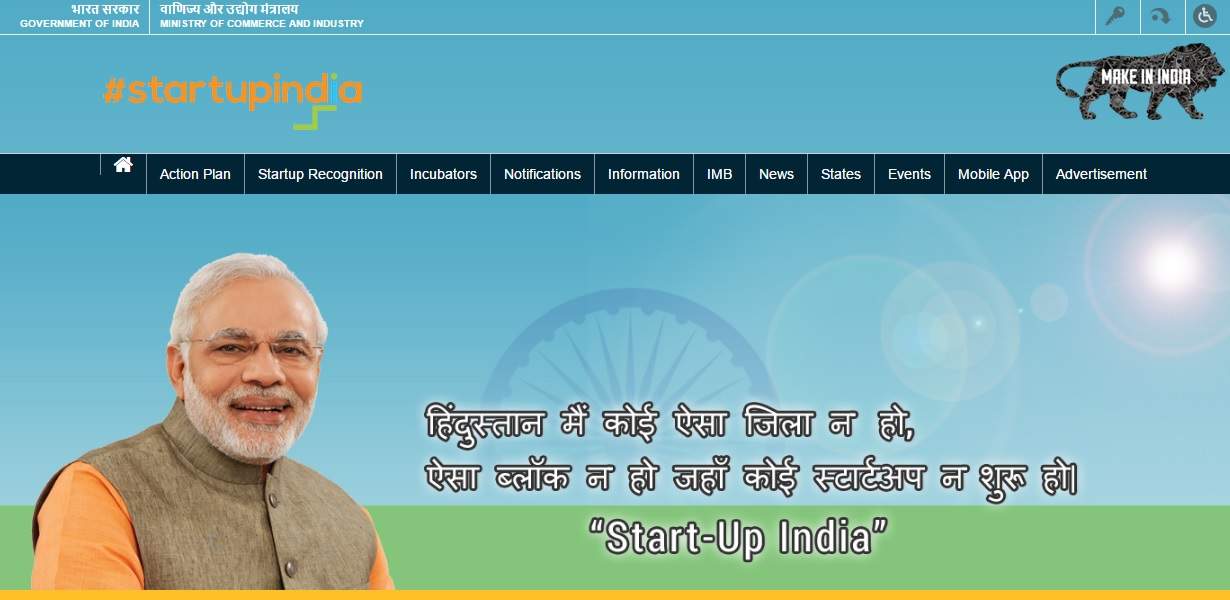Challenges faced by start ups
In the last few years we have seen the rise of Indian startups like Flipkart, Paytm, Zomato, Ola, Quikr etc. While these startups have made it big, for every startup that has been successful, there are a number of startups that have failed. The reasons for the failures of these startups include lack of funding; no proper handholding, guidance and support; unfavourable government policy and compliance issues; lack of tax incentives; lack of incubation centres and proper ecosystem etc.
Objective of Startup India
Startup India initiative of the Government of India precisely aims to resolve the above issues faced by startups and create an ecosystem in which startups don’t just survive but thrive and flourish. Startup India is a flagship initiative of the Government of India, intended to build a strong eco-system for nurturing innovation and Startups in the country that will drive sustainable economic growth and generate large scale employment opportunities. Under this initiative a Startup India Portal has been set up which shall serve as a platform for facilitation of Startup recognition, access to information related to incubators, mentors, Angel Funds, Venture Funds etc.
Action Plan
The Startup India programme aims to support people who have ideas and capability, to make sure they can implement their ideas and grow. In order to meet the objectives of the initiative the Government of India has announced an ‘Action Plan’ that will address all aspects of the startup ecosystem and accelerate spreading of the Startup movement.
The action plan is divided into 3 sections:
1) Simplification and handholding
Compliance through self-certification: Startups shall be allowed to self-certify compliance (through the Startup mobile app) with 9 labour and environment laws. In case of the labour laws, no inspections will be conducted for a period of 3 years. This will allow Startups to focus on their core business and keep compliance cost low.
Startup India Hub will be a friend, mentor and guide to startups to hold their hand and walk with them through their journey
Mobile app: The Government has introduced a mobile app to provide on-the-go accessibility for registration of startups with relevant Government agencies, tracking the status of the registration application and downloading of the registration certificate.
Patent applications of Startups shall be fast-tracked for examination and disposal. A panel of facilitators will provide general advisory on different Intellectual Property Rights (IPRs). Startups shall be provided an 80% rebate in filing of patents as compared other companies.
Faster exit: A swift and simple process has been proposed for Startups to wind-up operations.
2) Funding support and incentives
Funding support: The Government will set up a Fund of Funds with a total corpus of Rs. 10,000 crores, which shall participate in the capital of SEBI registered Venture Funds. This Startup fund will provide funding support for development and growth of innovation driven enterprises engaged in broad mix of sectors such as manufacturing, agriculture, health, education, etc.
Credit Guarantee Fund with a budgetary corpus of Rs. 500 crores per year will catalyse enterpreneurship by providing credit to innovators across all sections of society. This will encourage banks and other lenders to provide debt funding to startups.
Tax exemption on capital gains shall be given to persons who have capital gains during the year, if they have invested such capital gains in the Fund of Funds recognised by the Government. This will augment the funds available to various VCs/AIFs for investment in Startups.
Exemption of profits from income-tax for period of 3 years will be provided to startups. This fiscal exemption shall facilitate growth of business and meet the working capital requirements during the initial years of operations.
3) Industry-academia partnership and incubation
Startup fests at national and international stages will be organised by the Government. The fests shall have activities such as sessions to connect with investors, mentors, incubators and Startups, showcasing innovations, curated Startup walks, talks by disruptive innovators, competitions, announcements of rewards and recognitions, panels and conferences with industry leaders, etc.
Atal Innovation Mission (AIM) shall promote entrepreneurship and innovation by establishing incubators, tinkering labs, providing pre-incubation training, seed funding etc.
Incubators in public private partnership (PPP): The Government shall encourage setting up of 35 new incubators in existing institutions and 35 new private sector incubators. The Government will provide financing in the form of grant and funding support. These incubation facilities will provide physical infrastructure, provision of mentorship support, access to networks, access to market, etc. for startups.
Innovation centres at national institutes: The Government will set up 13 startup centres and set-up / scale up 18 Technology Business Incubators (TBIs). This will propel successful innovation through augmentation of incubation and R&D efforts in the country.
Research parks: The Government shall set up 7 new Research Parks in specified IIT institutes with an initial investment of INR 100 crore each. This will propel successful innovation through incubation and joint R&D efforts between academia and industry.
Incubator Grand Challenge: Through this exercise the Government shall identify incubators that have potential to become world class, provide them Rs. 10 crores each as financial assistance which may be used for ramping up the quality of service offerings. The objective of this challenge is to support creation of successful world class incubators in India.
Conclusion
With the above Action Plan the Government of India aims to play the role of a catalyst and create an ecosystem in which individuals with ideas and capability can build their startups and realise their dream of transitioning from job seekers to job creators.

